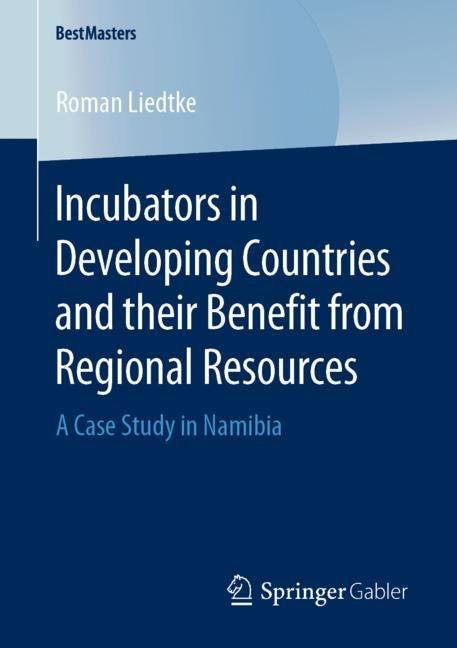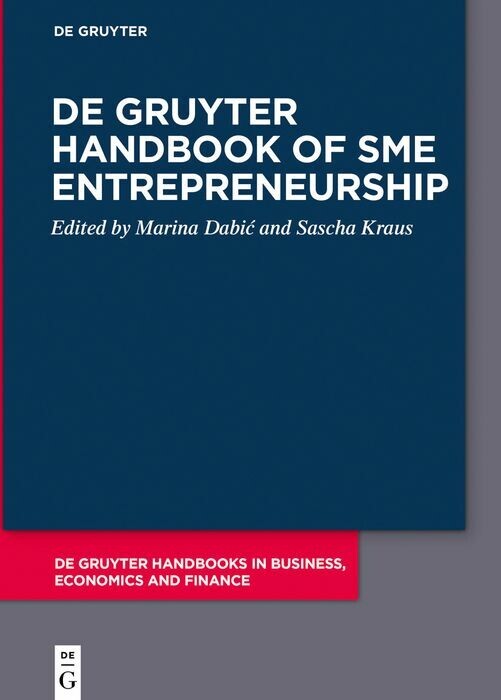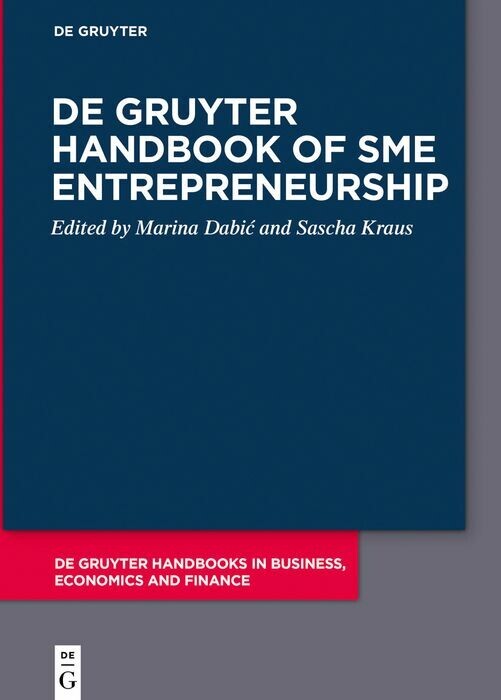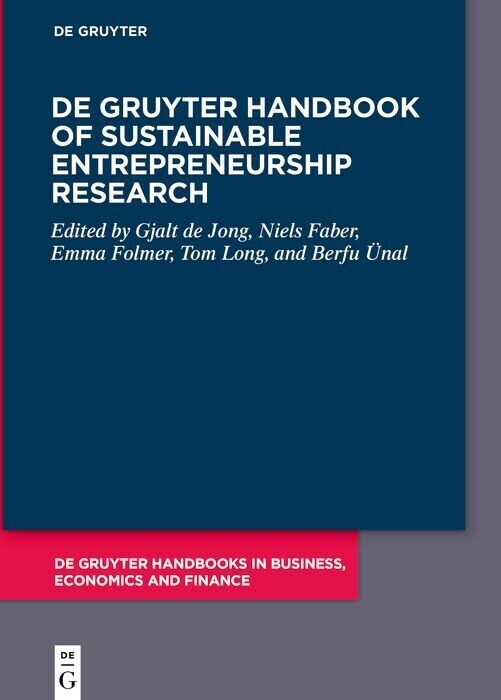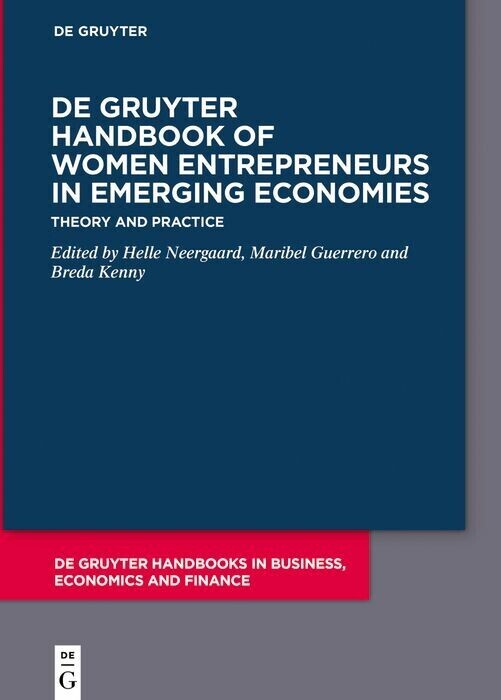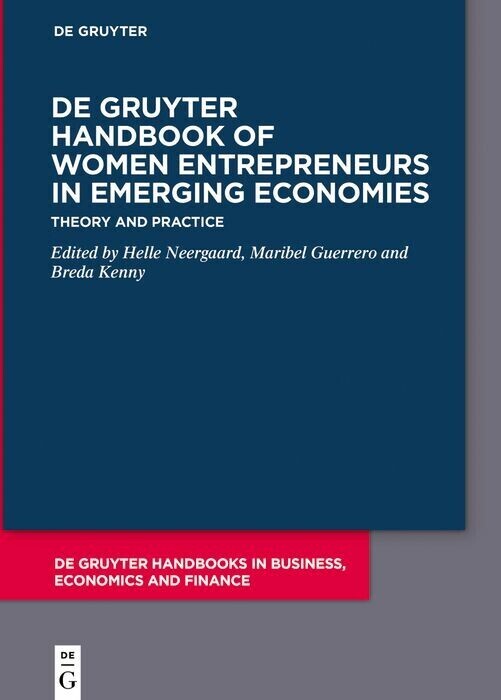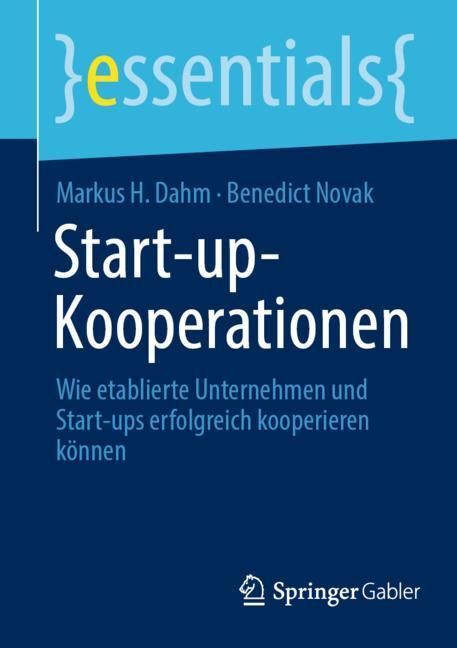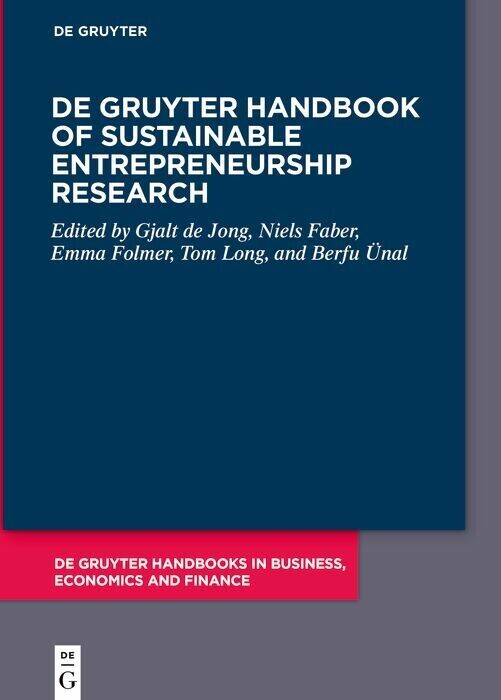Incubators in Developing Countries and their Benefit from Regional Resources
A Case Study in Namibia
Incubators in Developing Countries and their Benefit from Regional Resources
A Case Study in Namibia
Roman Liedtke investigates the causes of the failure of business incubators in developing countries. Based on the insights of an incubator program in Namibia, he develops a new absorptive capacity model which enables incubators in developing countries to improve their processes in order to better benefit from external resources. Since incubators and entrepreneurs suffer from resource constraints, the existing absorptive capacity research has been expanded by focusing on external resources and the institutional environment of an incubator in developing countries. This book opens up new perspectives and valuable results in incubator research in an effort to enable incubators to improve their programs and to boost growth rate of start-ups in neglected regions.
Roman Liedtke is currently working in the process and project management of an international operating forwarding agency. One of his main tasks is the back office management in India which is part of an administrative restructuring of the company headed in Germany.
Roman Liedtke is currently working in the process and project management of an international operating forwarding agency. One of his main tasks is the back office management in India which is part of an administrative restructuring of the company headed in Germany.
1;Table of Contents;6 2;List of Abbreviations;8 3;List of Figures;9 4;List of Tables;9 5;1 Introduction;10 5.1;1.1 Practical and Theoretical Relevance;10 5.2;1.2 Research Aims and Research Questions;11 5.3;1.3 Research Setting - Governmental Incubators in Namibia;12 5.4;1.4 Thesis Structure;12 6;2 Conceptual Backgrounds;15 6.1;2.1 Business Incubators;15 6.1.1;2.1.1 Delimitation of Incubators;15 6.1.2;2.1.2 Organizational Structure of Incubators;16 6.1.3;2.1.3 Resource Dependency in Organizations;18 6.1.4;2.1.4 Relevant Resources of Incubators;20 6.2;2.2 Institutional Theory;22 6.2.1;2.2.1 Definition of Institutional Theory;22 6.2.2;2.2.2 'Three Pillars of Institutions';23 6.2.3;2.2.3 Institutions and Developing Countries;24 6.3;2.3 Absorptive Capacity & Organizational Learning;25 7;3 Formation of Preliminary Assumptions;30 7.1;3.1 Linking the Theoretical Concepts;30 7.2;3.2 Development of Preliminary Assumptions;32 8;4 Methodology;34 8.1;4.1 Research Design;34 8.2;4.2 Data Collection;35 8.3;4.3 Data Analysis;38 8.3.1;4.3.1 MAXQDA;38 8.3.2;4.3.2 Pre-Determined First-Degree Categories;38 8.3.3;4.3.3 Inductive Coding with Paraphrasing;40 8.3.4;4.3.4 Validity;40 9;5 Findings;42 9.1;5.1 Introduction to Bokamoso Entrepreneurial Center (BEC);42 9.2;5.2 Relevant Resources;43 9.2.1;5.2.1 Organizational Resources;43 9.2.2;5.2.2 Technological/Physical Resources;45 9.2.3;5.2.3 Financial Resources;48 9.2.4;5.2.4 Human Resources;50 9.3;5.3 Absorptive Capacity;51 9.3.1;5.3.1 Prior Knowledge;51 9.3.2;5.3.2 Solution Knowledge;52 9.3.3;5.3.3 Need Knowledge;54 9.3.4;5.3.4 Impact of Institutional Surrounding;57 9.4;5.4 How BEC Fails to Benefit from Regional Resources;66 10;6 Discussion & Conclusion;71 10.1;6.1 Theoretical Contributions;71 10.2;6.2 Practical Implications;72 10.3;6.3 Limitations;73 10.4;6.4 Research Outlook;73 11;Bibliography;74
Liedtke, Roman
| ISBN | 9783658287221 |
|---|---|
| Artikelnummer | 9783658287221 |
| Medientyp | E-Book - PDF |
| Copyrightjahr | 2019 |
| Verlag | Springer Gabler |
| Umfang | 86 Seiten |
| Sprache | Englisch |
| Kopierschutz | Digitales Wasserzeichen |

